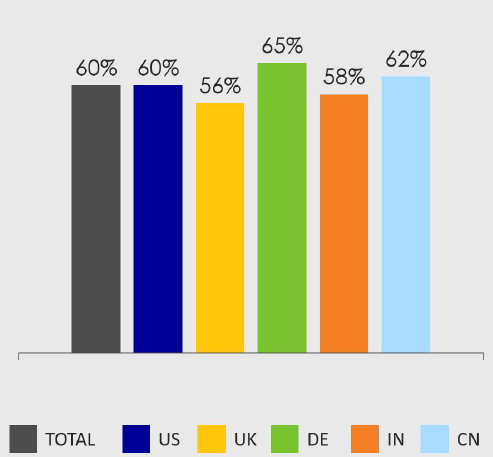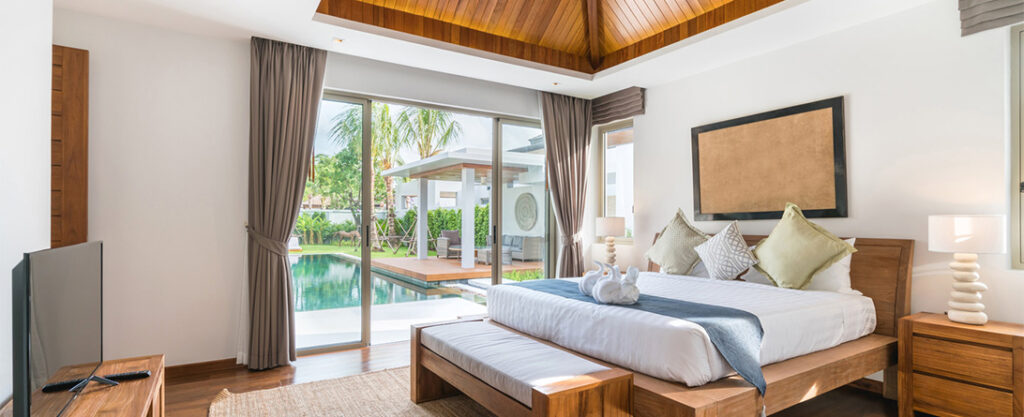Consulting Services answers recent client questions about hotel revenue management

“Lodging or a holiday accommodation is a type of residential accommodation. People who travel and stay away from home for more than a day need lodging for sleep, rest, food, safety, shelter from cold temperatures or rain, storage of luggage and access to common household functions.”
– Wikipedia
But is that all, Wikipedia? I used to find this definition satisfying until I attended the China Hotel Marketing Conference (HMC) in Hangzhou held by TravelDaily in June. The event’s main topic was all about redefining the lodging industry.
The word “lodging” supports a wide range: from five-star hotel rooms of big, international brands to shared guesthouses of Airbnb, dorm rooms at hostels to tents or caravans at campsites—the list goes on and on. Today’s lodging industry is not just simply described as “shelter from cold temperatures or rain.” The lodging world is more diversified than ever before, and the scope of the lodging industry is constantly expanding.
Consumer accommodation needs have become increasingly personalized, diversified and intelligent. How does this trend influence the revenue world? How do we hoteliers face all the major changes and challenges? How do we use innovative technology and big data to improve guest experiences while also improving overall revenue performance?
Stay calm. And let the revenue leaders handle it. Here are some recommendations to get you started:
Put on Your Bleisure Suit
The expanding scope of the lodging industry and the change of consumer demand forces us hoteliers to keep up with the times. As the definition of revenue management says, we must “sell the right customer the right product at the right time for the right price through the right channel”—and it starts with the right customer. Do we know our customers well enough? Are we able to follow their pace and keep up with it? Have we noticed the changes of their behavior patterns? Their booking habit changes? Their profile and age structure and portrayal changes? Their feelings? Their needs? Their reaction to our products and services and prices?
It’s common practice to segment customers by travel purpose: leisure or business. But now we see a quickly growing new tribe of travelers who inject fun into business trips, a new market segment we call “bleisure.” According to a Skift trend report, work travel has emerged as a lifestyle rather than a necessity for some people, and more than half of the bleisure travelers bring family or a significant other along.

Percentage of bleisure trips among business trips in five countries during 2017. Reference from 2018 HMC event held by TravelDaily.
During HMC, TravelDaily shared survey results showing, on average, 60 percent of business trips have become bleisure trips among five major countries. In the US, the number was only 43 percent in 2016 but jumped way up to 60 percent in 2017. Also, studies show that those bleisure travelers usually add two additional days to their trips to explore the new place, the people and the culture, to make their business travel more worthwhile, or simply to relax before the next journey.
Have we revisited our current market segment setup to account for bleisure as a new customer group? They normally stay longer than regular corporate guests, from weekdays into weekends even, and tend to travel in larger party sizes. Do we have any special promotions tailor-made for them? The standard corporate deal of a single breakfast package might not cut it. Besides, studies show that the most popular bleisure activities are: 1. Sightseeing 2. Dining 3. Arts & Culture. And 96 percent of respondents believe they gain cultural experience and knowledge through bleisure trips. Are the magical revenue managers able to be more creative and considerate enough to design more comprehensive, but not overly complicated promotions to satisfy client needs and boost more customer loyalty?
Clearly, for the revenue mangers, bleisure travelers offer a great opportunity to increase occupancy and revenue performance from additional guests and extended stays. This would be a solid bonus for typical business hotels. But even non-business oriented properties could strategically target bleisure travelers and pull guests from business hotels lacking leisure features. Marketing teams can work to educate customers about their offerings and area attractions through promotional packages that really bring their hotel brand to life. And that is how we qualify a successful promotion.
Grab Your Selfie Stick
While “bleisure” might be new to you, the word “selfie” has surely made its way into your vocabulary by now. The Oxford English Dictionary even chose “selfie” as its 2013 Word of the Year, and rightfully so—because selfies have taken over the world.
Cameras are nothing new to travel. Tourists have long enjoyed snapping shots of their new surroundings and famous sights, but now people have become the primary subject of their vacation photos, pushing the scenery to the background. This self-expression and self-promotion displays the new view that “we are the center of the journey.” We’ve become increasingly self-focused, with more specific needs during trips. A simple, cozy hotel bed just isn’t enough. We look for first-rate dining experiences instead of how to simply get fed. We look for memorable and unique experiences and stories to share with friends and families back home. We look to blend in with the local culture, to live like the locals. We look for fashion, entertainment, relaxation, rejuvenation, social interaction and more.
Have we as hoteliers reexamined our products and services to see what more we can deliver within a limited space and time? A hotel stay has become only a staging post of the entire journey for the guest but still sometimes seems to be the entire world to hoteliers. A revenue leader’s new role in today’s lodging industry is not simply offering pricing and controlling the inventory, but being the “time and space operator.” How can we create more customer-centered service with more personalization to meet their needs?
Brands like Marriott and Airbnb are trying every opportunity to “sell experience” by adding thousands of offerings across thousands of destinations with activities like a $27 walking tour of Detroit, a $12 yoga class on a Nashville porch and a $588 full-day tour of Tuscany. Some exclusive offers such as a pastry class at Le Cordon Bleu in Paris can only be booked with Marriott or Starwood points. Meanwhile, loyalty members can also earn points for booking these activities. If your hotel hasn’t done anything like that, you may want to take a closer look at the fun activities right in your neighborhood to see if anything can be packaged with your guest rooms.
In modern lodging society, crossover is not only a means of cooperation, but also a way of thinking and strategizing. The Ascott has set up a joint venture with Huazhu Hotels Group and apartment rental firm CJIA Apartments Group to expand its Citadines brand in China. The joint venture will have an initial registered capital of 100 million yuan ($21 million). The divisions between hotels and long-stay apartments have blurred. Marriott launched a six-month trial period with a U.K.-based home-rental company, Hostmaker, adding some 200 homes across London to its offerings, showing Marriott’s foray into vacation homes to compete with Airbnb. AccorHotels acquired restaurant booking service ResDiary. According to the CEO of AccorHotels, “This acquisition completes recent investments of AccorHotels in the food & beverage industry. It fully supports the group’s ambition to increase touchpoints with a fast-growing customer base.” Hotels have become places full of deep lifestyle experiences enabling integrations either with luxury brands like Chanel, Armani, Lamborghini, etc., or popular IPs like Star Wars and Disney. When this IP border crossing integration happens successfully, sometimes the meaning of IP changes to “infinite possibilities.”
All these new trends in the lodging industry inspire us to look outside the box from the market side, the client side and even the other industry side to fold these concepts into our daily work. For revenue leaders, you may not have to make the tough decisions of “which company to acquire” or “which industry to cross over” as a daily task, but we can try to figure out the best practice for offering short-term and long-term stay solutions to customers with different needs based on behavior patterns. How can we bring the most popular movie, event or hot topics when appropriate and relevant into our market promotions and packages to make them more attractive and appealing? Any chance to combine F&B, spa, gym or other recreational facilities into a guest stay instead of just the old, routine breakfast package?
The word “lodging” is no longer simply defined as before, or simply done in a hotel, motel, inn or hostel. Instead of just “shelter from cold,” it has become an experience and a journey full of memory and stories, culture and fashion, and, of course, bleisure and selfies. It is quality time in a space that’s somewhere else away from home but just as great as, if not greater, than home. Our new mission as hoteliers and revenue managers is to offer the best hospitality we can provide as time and space operators.
Hey, don’t leave now—the fun is just beginning. Here are more industry insights making the rounds this week:
- The Data Journey in a Hotel: Data goes through a journey and ultimately ends with the data scientists who translate the data into actionable insights. However, in order for the data to make it safely and securely from the beginning to the end, there are many roles to be played by the hotel staff members to ensure its delivery (via SnapShot).
- It’s 2019 Budget Season: Here’s What You Need to Know: When it comes to driving guest engagement, boosting loyalty, and driving direct bookings, it’s important you budget for the right technology so you can achieve your goals and exceed expectations no matter what unexpected challenges the new year brings your way (via Revinate).
- How Reputation Management Can Help Increase a Hotel’s Revenue: Before adopting any kind of marketing strategy, it’s important for hoteliers to thoroughly analyze past performance and experiences, especially from a guest’s point of view (via TrustYou).
- Change Management Essentials for Revenue Leaders - August 20, 2019
- Bridging the Industry with Yuki Hu - November 7, 2018
- Bridging the Industry with Yuki Hu - August 29, 2018
